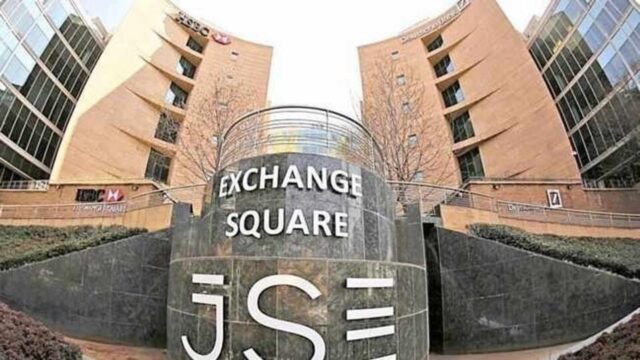MARKETS ON MONDAY: Equity markets on the JSE remained uncertain and nervous last week due to a lack of fresh domestic market and economic data, writes economist Chris Harmse.
EQUITY markets on the JSE remained uncertain and nervous last week due to a lack of fresh domestic market and economic data.
The news from the US – that its inflation rate went up to 3.4% in December 2023, up from a five-month low of 3.1% in November, and the core inflation rate is sticky at 3.9%; and, that the US unemployment rate remained at 3.7% in December (year-on-year) – was negative for share prices.
The data indicates the US Federal Reserve will keep its bank rate the same for a longer period than was expected. On the JSE, the All Share Index lost a further -1.0%, and now already trades -4.0% down for the year to date, and -6.0% over last January this time.
The Industrial board moved -0.6% lower over last week, and now trades -2.1 % for the year so far. Resources remain under pressure and were down by -3.5% the past seven days, and tumbled by -9.0% for the first two weeks in January. Financials outperform most indices. The FIN15 gained 0.9% last week on the back of a stronger rand and trades -2.0% lower since the beginning of 2024.
Equity markets remain uncertain in the light of fears of US economic recession, a hawkish South African Budget (with tax increases) and other geopolitical factors, such as the State of the Nation Address by the president and the election.
On Friday, the news that the US production inflation rate declined by -0.1% in December – the third consecutive monthly decrease – boosted sentiment again that the Fed would start to decrease interest rates sooner.
In reaction, the two-year US treasury yield dropped to its lowest level since May 2023. In reaction, US equities closed stronger last week. The Dow Jones Industrial index gained 0.71% over the previous five days, but remains flat at +0.7% for the year to date. The S&P500, after closing sharply higher on Friday, traded 1.70% up for the week. The Nasdaq composite tech index increased by 2.8% last week.
On the foreign exchange market, the rand had a much better week. Against the US dollar the currency improved by 12c last week and traded at R18.58/$ on Friday. Against the pound the rand stayed flat last week at R23.71, but improved by 10c against the euro to R20.38.
Given the slightly higher average Brent oil price since December 28, 2023, despite a marginally stronger rand, the price for petrol 95 was 2c under-recovered on Friday, and the price for diesel was over-recovered by 5c a litre. It is expected the rand will continue to move stronger over the next two weeks, and that consumers may pay less for fuel at the beginning of February.
This week, local markets will await the release by Statistics South Africa of retail sales for November 2023 on Wednesday, as well as mining production data for November on Thursday.
It is expected that sales at retail shops contracted by -1.0% on the previous year. This follows the -2.5% decrease year on year in October 2023.
On global markets, China will announce its gross domestic product growth rate for 2023 on Tuesday. It is expected that the world’s second largest economy grew by 5.3% last year, up from the 4.9% rate achieved in 2022. The UK will release its latest inflation rate for December on Tuesday, and the US will publish its retail data for December on Wednesday.
Overall, a better week for equities on the JSE, the rand and bond rates are expected.
* Chris Harmse is the consulting economist of Sequoia Capital Management.
– BUSINESS REPORT








